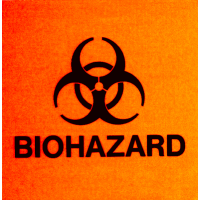U.S. Bioterror Labs Still at Risk due to Lack of Safety Standards

The federal government still has not established national safety standards for bioterror laboratories, leaving them at risk for accidents or breaches in security.
This conclusion was reached following the release of two inspection reports by federal watchdogs: the Government Accountability Office (GAO) and the U.S. Department of Agriculture’s (USDA) inspector general.
GAO auditors reported that the labs, which research potential bioterror germs like anthrax, face an increased risk for accidents because federal officials have not developed standards for lab design, construction and operation. Such standards were suggested by the GAO more than three years ago.
Meanwhile, another report by the USDA’s IG faulted the labs for not detecting security and safety violations uncovered by inspectors. The violations included the transfer of anthrax and plague to an unauthorized facility, and allowing workers to keep their jobs with expired security risk assessments.
“As a result, there is increased risk of the misuse of select agents and the potential for serious security violations going undetected,” the USDA IG report stated.
Officials with the USDA inspection program described the report as “unduly alarming” and said that many of its recommendations would not be adopted.
The USDA and the Centers for Disease Control and Prevention (CDC) share responsibility for inspecting labs that are registered to work with dangerous germs and toxins that have bioterror potential.
However, following a USA Today investigation about safety and security problems at CDC labs in Atlanta, the USDA was put in charge of inspecting labs operated by the CDC.
Incidents at labs are rare, claims the CDC. It reported that between 2004 and 2010 there were no thefts, one loss, and 639 “release incidents” that resulted in 11 infections—none fatal or contagious—among more than 10,000 employees.
According to the GAO, additional incidents have involved several CDC lab power outages at a lab in Atlanta.
-Noel Brinkerhoff
To Learn More:
Reports Warn of Lax Inspections, Bioterror Lab Risks (by Alison Young, USA Today)
Letter to Congress on High Containment Laboratories (U.S. Government Accountability Office)
Follow Up on APHIS’ Implementation of the Select Agent or Toxin Regulations (U.S. Department of Agriculture, Office of the Inspector General)
Memo from USDA Administrator to USDA I.G. (USDA Animal and Plant Health Inspection Service)
U.S. Government Wants to Move Bio-Defense Lab from New York to Kansas (by Noel Brinkerhoff, AllGov)
Is Fort Detrick Toxic to Soldiers and Their Families? (by Noel Brinkerhoff, AllGov)
- Top Stories
- Unusual News
- Where is the Money Going?
- Controversies
- U.S. and the World
- Appointments and Resignations
- Latest News
- Trump to Stop Deportations If…
- Trump Denounces World Series
- What If China Invaded the United States?
- Donald Trump Has a Mental Health Problem and It Has a Name
- Trump Goes on Renaming Frenzy






Comments